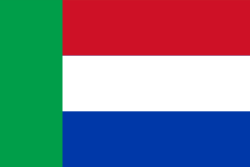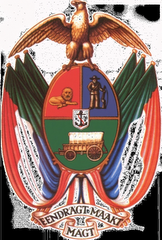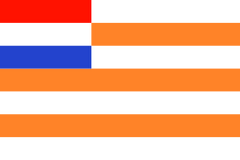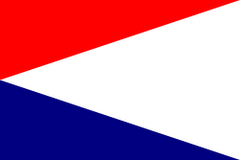MOST POPULAR ARTICLES
10 Reasons Why Russia Can’t Trust Uncle Sam
Putin: We won’t let Britain treat Russia like a colony
Russia’s ‘Superjet’ Set for Year-End Maiden Flight
Cold War in Hot Sands – New African Reality
High-Speed Trains to Run in Russia
About the paperHistoryAdvertisingVacancy
If you believe the Cold War is over, or if you think slavery is a thing of the past, think again. Even a cursory glance at Western Sahara, a land barely known to most people outside Africa, will prove you wrong on both points.
In late June, American news media cautiously reported that Morocco and Western Sahara's Algerian-backed pro-independence movement, the Polisario Front, were poised to reach a compromise on self-rule as a result of two days' negotiations in the U.S.. There has been no breakthrough yet. But the two parties agreed to meet again during the second week of August in Manhasset, New York, according to Peter van Walsum, the personal envoy of UN Secretary General Ban Ki-moon.
Neither colony nor sovereign nation
Western Sahara has been a disputed territory for 32 years. Concurrently, it has been high on the decolonization agenda of the UN General Assembly for 42 years. The ongoing talks held in the Long Island beach town of Manhasset, 20 miles from New York City, are crucial because five years have passed since Morocco and the Polisario Front engaged in bilateral talks. Another two parties, Algeria and Mauritania, are observers to the talks, as recommended by the UN Security Council.
Rabat is willing to grant a degree of autonomy to Western Sahara, but only if it remains subject to Morocco's sovereignty. Polisario's proposal calls for a referendum on independence, nothing short of it. Far as these standpoints may seem from each other, "one should give the upcoming round of negotiations the benefit of doubt if not belief", says an insider who asked not to be identified.
"Inch'allah", as they say in that part of the world: God willing. Many international mediation attempts have been made, so far to no avail, last by former U.S. Secretary of State James Baker III (2003). However, a UN-brokered ceasefire has amazingly enough survived since 1991.
A former colony of Spain, Western Sahara was abandoned by its metropolis in 1975, only to be handed over to Morocco and Mauritania, who shared control of the territory until 1979, when Mauritania ceded its control. Polisario, initially an anti-colonial movement fighting against Spanish rule, has come to be defined by its leaders' political ambitions, greed, and adherence to Soviet-style world view. Having to choose between two regional power players, Morocco and Algeria (Mauritania is too weak to be included in the equation), Polisario sided with the pro-communist regime of Algeria.
Hostages of regional rivalry
As Algeria gains in international status and regional influence, literally fueled by its oil and gas reserves, Polisario is growing increasingly defiant vis-a-vis Morocco's offer of autonomy.
Morocco, on the other hand, is one of the West's few friends in the Arab world, thanks to the late King Hassan II and his successor son, King Muhammad VI, who is trying to modernize and democratize his country and is bidding for Morocco's membership of the European Union, its main economic and trading partner. Morocco has been given the status of a non-NATO ally by Washington, which has praised its support for the U.S.-led war on terror. After deadly suicide bombings in Casablanca in 2003, Morocco launched a crackdown on suspected Islamic militants.
While Morocco and Algeria are vying for control over Western Sahara with its hypothetically rich offshore oil and gas resources, the population of Western Sahara lives in dire poverty and widespread illiteracy. A large part of the Sahrawis, the indigenous people of Western Sahara, is made up by the inhabitants of overcrowded refugee camps on the Algerian territory, run by Polisario.
Recently, two Australian journalists, Daniel Fallshaw and Violeta Ayala, went to the Sahrawi refugee camps in the Algerian desert. What they discovered is a society where slavery still exists.
Will anybody care?
According to the journalists, slavery "seems to be an institution within their society", where black women are sexually abused by their ‘white' Moor masters and don't have the right to get married without their masters' consent; where black people work for their masters for free; and where slaves are passed from family to family.
"It is estimated that there are several thousands of black Sahrawi slaves who live in refugee camps in Algeria", Fallshaw and Ayala assert in an interview with NTV America. "Is it possible that Polisario, a liberation movement, seems to condone this state of affairs?"
The journalists told the press freedom organization, Reporters without Borders, that Polisario authorities didn't really appreciate their investigative work, to put it mildly. According to a statement issued by Reporters Without Borders, they "were detained by Polisario Front security officials on May 2, 2007, and their mobile phone was confiscated. They were then taken to an office used by the security services, where they were held for about five hours. After UN officials intervened, the journalists were able to leave the Rabouni camp and go to Tindouf, from where they caught a plane to France a few days later."
"The fact that they are fighting for their independence does not mean that Polisario's leaders can allow themselves to commit such human rights violations," Ms. Ayala said. "It is our duty as journalists to denounce such practices. We originally went there to work on the problem of separated families. But during our stay, we witnessed outrageous scenes of slavery."
Internationally, major world powers, such as the U.S. and Russia, have taken neutral stands towards each side's claims and have pressed both parties to agree on a peaceful resolution. Both Morocco and Polisario have sought to boost their claims by accumulating formal recognition, largely from minor states. The issue of alleged slavery has never been raised by any nation.
By Ilia Baranikas
US Correspondent
The Moscow News
back to main pagesend by e-mail
RELATED ARTICLES
26/07/2007 10 Reasons Why Russia Can’t Trust Uncle Sam
20/07/2007 Ukraine’s NATO Membership Is Path to ‘Small’ Cold War
24/05/2007 Why This ‘Cold War’ Is Different
Thursday, August 9, 2007
Subscribe to:
Post Comments (Atom)







No comments:
Post a Comment